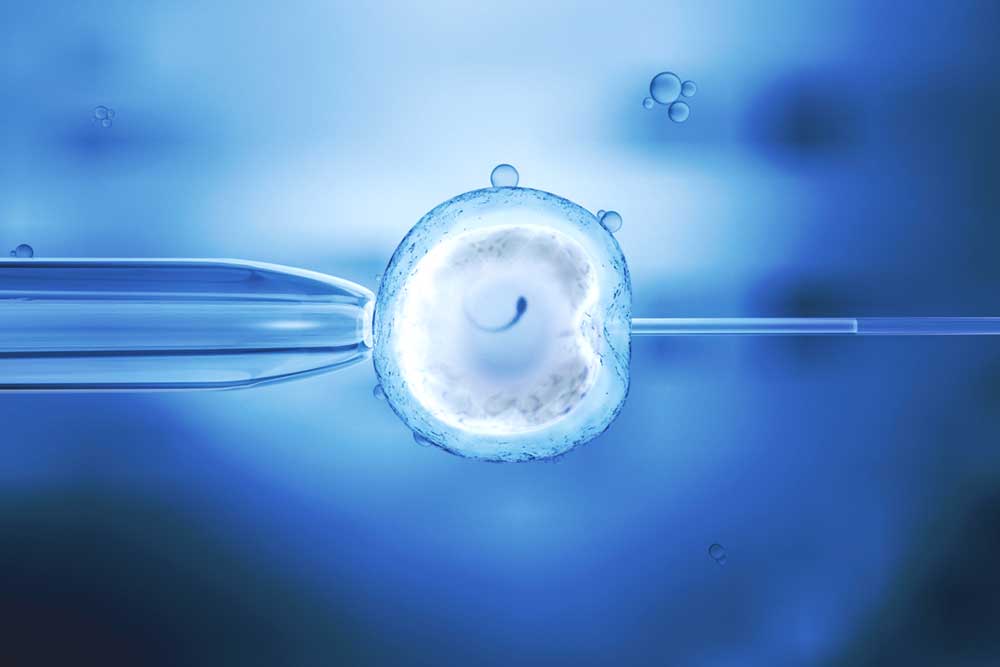
Passionate about reproductive science and want to pursue a career in Clinical Embryology, MSc Clinical Embryology in the UK would be a wise move. MSc Human Clinical Embryology and Assisted Conception is a program that can upgrade your knowledge and skills about various Artificial Reproductive Techniques (ART) to work in Laboratories and Fertility Clinics. UK Universities offer quality programs in Clinical Embryology and allied courses to prepare you for an advanced and upcoming field of Biology.
What is Clinical Embryology?
Clinical embryology is a specialized field that focuses on the study of human embryos and their development. It involves an in-depth study of various techniques and procedures that are used in assisted reproduction, such as in vitro fertilization (IVF), embryo culture, embryo transfer, and cryopreservation. Clinical embryologists play a vital role in fertility clinics and ART laboratories, where they handle and manipulate human gametes and embryos

Why Pursue MSC Clinical Embryology in the UK?
UK Universities are known for their quality teaching and research opportunities and when it comes to Clinical Embryology it is evident from the fact that the first IVF baby was born in 1978 in the UK. UK universities are globally recognized for their quality education and research in the field of medicine, biotechnology, and biological sciences. The UK is home to some most advanced laboratories and research facilities in the world.
Quality Education:
UK has a well-established reputation for high-quality education and research in the field of Clinical Embryology. UK Universities have ultra-modern advanced technology labs to facilitate practical teaching so that students can gain much-needed hands-on experience and conduct their research.
Reputation:
UK Qualifications are globally recognized and companies actively recruit talent from these Universities for local and international jobs. Studying MSc Clinical Embryology enhances your employability in world giants like AstraZeneca, Biogen, Oxford Nanopore Technologies and many more
Networking Opportunities:
UK Universities accept students from all over the world with diverse cultures and backgrounds. It provides an opportunity to interact with like-minded people and exchange ideas, knowledge and interest. The UK also allows students to interact with industry leaders, researchers and professionals from the field of Clinical Embryology and Assisted Conception. You can take advantage of their knowledge and develop connections for future collaborations.
Clinical Exposure and Hands-on Training:
The UK has a strong network of fertility clinics and research institutes. UK Universities also take advantage of NHS Hospitals for clinical exposure and hands-on training of their students. Studying in the UK will give me much-required clinical exposure and hands-on training in the field of Clinical Embryology.
MSc Clinical Embryology in the UK: Top Universities
Many universities offer MSc Clinical Embryology programs in the UK. Some popular universities which are most preferred by Indian students are listed below.
MSc Clinical Embryology and Assisted Conception: University of Dundee
The MSc Human Clinical Embryology and Assisted Conception Program at the University of Dundee has excellent clinical links and a close working relationship with the NHS. The blend of scientific-practical skills and the integration with an NHS facility will give you first-hand experience and exposure to the workings of an IVF clinic and will provide an excellent base to enter a career in ART in a clinical environment. Human clinical embryology, andrology, and ART are all thoroughly covered in this course from a clinical, research, and laboratory standpoint. The course places a strong emphasis on humans and provides opportunities for practical experiences, such as handling and processing sperm.
The University of Dundee is a trusted name for education in Clinical Embryology and the teaching hospital associated with the program is Ninewell Hospital, Dundee. Prof. Barratt, a renowned name in the field of Clinical Embryology, is the School Director at the University of Dundee.
MSc Clinical Embryology: University of Oxford
This one-year, residential, taught MSc offers graduate students, researchers, and clinicians a highly advanced theoretical and practical understanding of human reproductive biology, embryology, infertility, and assisted reproductive technology (ART), as well as intensive ‘hands-on’ practical training in key laboratory skills and the advanced gamete micromanipulation techniques associated with ART.
MSc Clinical Embryology and Assisted Conception Technology: University of Leeds
The reproductive sciences present a singular potential to significantly impact society through your work. This vocational training course is designed for recent biology, biomedical, biochemistry, and medical graduates who desire to pursue a career in the field. It is taught by the knowledgeable staff of the Leeds Institute of Genetics, Health, and Therapeutics. This laboratory-based science degree, which does not focus on clinical infertility treatment, is intended to give students a thorough grounding in the theory and practices that underlie clinical embryology, assisted reproductive technology, and/or related reproductive sciences.
MSc Clinical Embryology: Liverpool John Moores University
The goal of the MSc Clinical Embryology program is to give students a thorough understanding of assisted reproductive technologies. Both at LJMU and CARE Fertility Manchester, you will get access to specialized, cutting-edge laboratories and be trained in pertinent new technologies. The dedicated training lab at CARE Fertility has four fully furnished areas for practical work and professional presentations. There are microscopes, lasers, and micromanipulators in each area, and there is also access to IVF incubators and supplies. Additionally, there is a specific area with audio-visual resources for instruction, group work, and study with a live video link to the on-site clinical IVF laboratory.
Eligibility Requirements: MSc Clinical Embryology in the UK
Academic Qualification:
A 2:1 (Hons) bachelor’s degree in a relevant biological, biomedical or veterinary science field, in medicine or healthcare sciences, or an equivalent qualification. Academic qualification requirements differ from university to university and experience will be considered.
English Language Proficiency:
IELTS 7.5 overall, with no component scoring lower than 7.0.
Relevant Experience:
Experience in laboratory-related settings will be considered. Some Universities could favour candidates with prior work experience in a similar industry, such as working in an ART lab or doing reproductive biology research.
References:
A strong recommendation is required from a previous university or from the employer.
Personal Statement:
A personal statement outlining and explaining the reason for choosing the program, how its relevant to your previous studies and future impact on your professional career.
MSc Clinical Embryology in the UK: Application Process: How to apply?
The application process typically involves the submission of an online application along with supporting documents like your transcripts, degree certificate, English language proficiency certificate, statement of purpose, letter of recommendation, copy of your CV, experience letters and other relevant documents. It is recommended to check specific requirements and deadlines before making applications to the universities.
MSc Clinical Embryology in the UK: Curriculum and Modules
- Introduction to Clinical Embryology
- Reproductive Physiology
- Gamete and Embryo Assessment
- Laboratory Techniques in Assisted Reproduction
- Quality Control and Quality Assurance in ART
- Elective Modules
- Advanced Topics in Embryology
- Fertility Preservation
- Embryo Biopsy Techniques
- Assisted Reproductive Technologies
- Ethics and Law in Reproductive Medicine
Cost of MSc Clinical Embryology in the UK
Tuition fees for MSc Clinical Embryology in the UK range between GBP 29000 – 39000 depending upon the university. UK Universities offer scholarships and fee discounts for deserving candidates on the basis of their educational qualifications and experience in the field of biology. Living cost in the UK usually comes to around GBP 800 – 1100 outside London and around GBP 1100 – 1500 within London.
UK Visa fees and IHS Surcharge
UK Tier 4 Student Visa fees are GBP 363 and you are required to pay an Immigration Health Surcharge (IHS) of GBP 470 for a stay that lasts 6 to 12 months and an additional GBP 235 for any additional period that is less than 6 months.
UK Immigration Health Surcharge Calculator
Career Opportunities and Future Prospects
A profession in human-assisted reproduction (such as clinical embryology, infertility therapy, or research in the reproductive sciences) is possible for graduates of the Clinical Embryology and Associated Reproductive Technology
Clinical Embryologist
Research Scientist
Fertility Specialist
This option is available to qualified MBBS doctors who have a special interest in Gynecology. They can pursue Gynecology in the UK after this qualification. It is worth noting here that Clinical Embryology and Assisted Conception is a subspecialty of Gynecology worldwide.
How to pursue Gynecology in the UK
Pursue Fertility Medicine (ART) in the UK without Post Graduation in OBG
Academic Position
Conclusion
Pursuing MSc in Clinical Embryology in the UK can be a milestone program in your career if you have a passion for reproductive science and are willing to contribute to an evolving field. The UK can be an ideal option in terms of Universities, hands-on training and research opportunities and future career prospects for employment. The program will equip them with the required knowledge and skills for a much more rewarding career as clinical embryologists or researchers.

